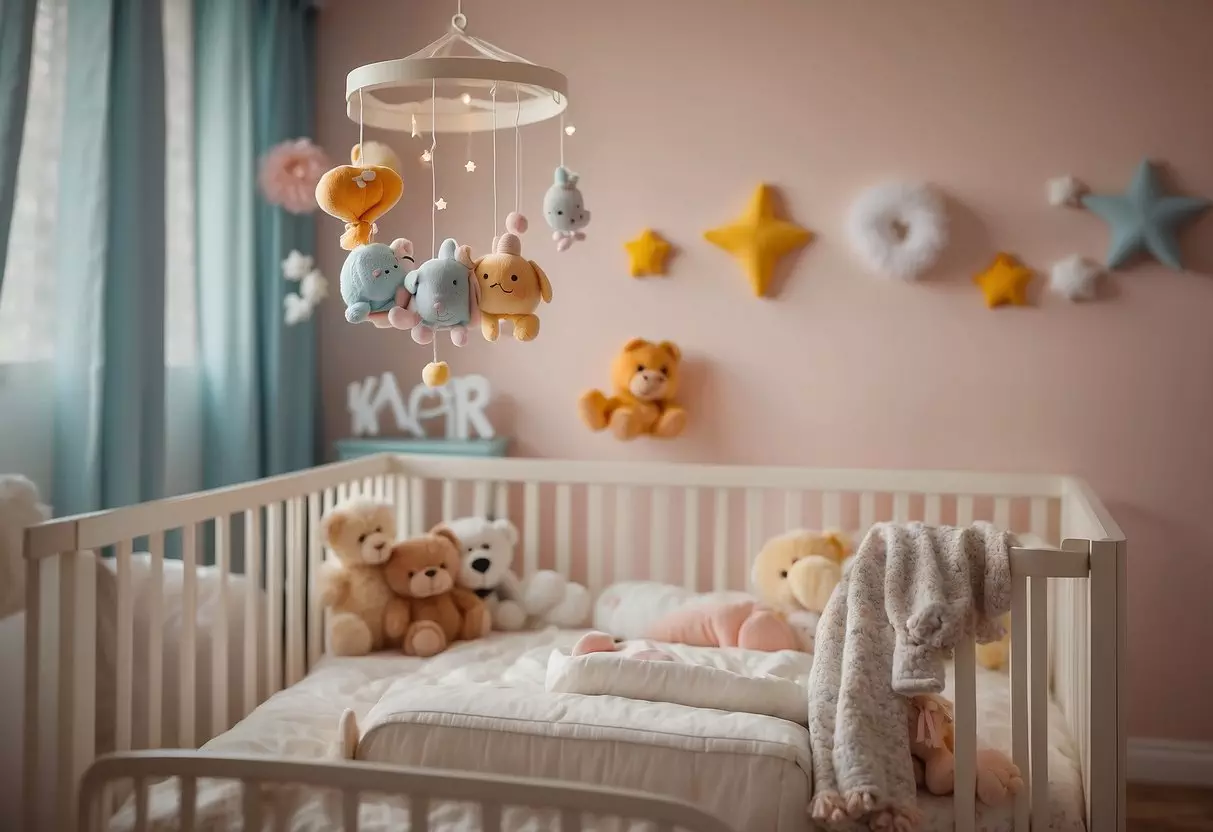Is 22 a Good Age to Have a Baby? Exploring Young Parenthood
When thinking about having a baby at 22, there are several factors to consider. 22 is a good age to have a baby if you are healthy and ready for the responsibilities that come with parenthood. Your body is likely at a peak state for fertility, giving you a higher chance of getting pregnant easily.

If you are in a stable relationship and feel emotionally prepared, 22 can be an ideal age. Many people in their early 20s are very fertile, with about an 85% chance of getting pregnant within a year, according to experts. You also have the advantage of more energy to keep up with a young child.
On the other hand, it’s important to think about where you are in life. Are you financially stable? Do you have a strong support system? While your body may be ready, being prepared in other ways can make a big difference. If these areas are aligned, starting a family at 22 can be a wonderful decision.
Table of Contents
Considering Your Biological Clock

When thinking about having a baby at 22, it’s helpful to understand how your biological clock impacts fertility and the risks of delaying pregnancy.
Understanding Fertility and Age
Your fertility is closely tied to age. Women are most fertile in their early 20s. During this time, your ovaries have a high number of healthy eggs. As you move into your late 20s and early 30s, your fertility begins to decline.
By the time you reach your late 30s, the decline becomes more pronounced. The number of eggs in your ovaries decreases, and the quality of those eggs may also be lower. Hormone levels, which play a crucial role in reproduction, can start to fluctuate, further affecting fertility.
Risks of Delaying Pregnancy
Delaying pregnancy until your late 30s or beyond can come with risks. As you age, the chances of complications during pregnancy and childbirth increase. Conditions like gestational diabetes and high blood pressure become more common.
The risk of miscarriage also rises with age. Fertility declines sharply after 35, making it harder to get pregnant. By the age of 37, a woman’s egg count drops to about 25,000, a small percentage of the original count.
Menopause, which usually happens around 45-51 years, marks the end of fertility. Planning for a baby while considering these factors is essential to avoid potential difficulties. Learn more about fertility changes.
Health and Pregnancy

Having a baby at 22 comes with various health and pregnancy considerations that are important to keep in mind. This includes how age affects health and the potential complications that could arise during pregnancy.
Age-Related Health Considerations
At 22, your overall health can play a significant role in your pregnancy. Younger women typically have fewer chronic conditions, like high blood pressure or diabetes, which can affect pregnancy. Maintaining a healthy weight, following a balanced diet, and regular exercise are key factors for a healthy pregnancy.
You are also likely to have better thyroid function and fewer issues with placenta previa or other pregnancy complications. Maintaining healthy habits early on can lead to fewer risks and a greater likelihood of having a healthy baby. Regular prenatal care is crucial to monitor and address any medical conditions that may arise.
Pregnancy Complications with Age
While the age of 22 is generally associated with fewer pregnancy complications, it’s still important to be aware of potential risks. Miscarriages can occur at any age, so regular medical check-ups are important. Conditions such as preeclampsia, which is high blood pressure during pregnancy, can still happen.
The risk of gestational diabetes is lower at 22 but monitoring blood sugar levels remains essential. Younger women are less likely to face chromosomal abnormalities like Down syndrome, which become more common in later pregnancies. However, staying informed and cautious about any signs of premature birth or birth defects is always recommended to ensure your pregnancy proceeds smoothly.
Lifestyle and Personal Goals

Choosing to have a baby at 22 involves considering how your lifestyle and personal goals align with the responsibilities of parenthood. Important factors include your career path and family planning.
Career and Family Planning
At 22, your career may be in its early stages. Balancing work and a new baby requires careful planning. Think about your job stability, hours, and potential for growth. If you’re in college or just starting a job, you might face challenges balancing studies, work, and parenting.
Financial stability is another important aspect. Raising a child is expensive, and ensuring you have a stable financial situation will help reduce stress.
Consider your personal goals. If traveling, further education, or reaching career milestones are priorities for you, having a baby might delay these plans. Flexibility and a strong support system are crucial for managing career and family responsibilities.
Consult with both healthcare providers and career advisors to navigate these choices effectively. Get as much information as possible so that you can make an informed decision that works for you.
If family planning is on your mind, you might want to consider spacing between children. This allows your body to recover and gives you time to focus on each child’s needs.
Planning with your partner is also essential. Discuss how you will share responsibilities and support each other through this major life change. Having a clear plan can make the transition smoother.
Fertility Assistance and Alternatives

When considering having a baby at age 22, you might want to know about the available fertility treatments and alternatives like adoption. Here, we break down important options and explain what you might encounter.
Exploring Fertility Treatments
If you experience fertility issues, various treatments can help. In vitro fertilization (IVF) is one common method. It involves combining eggs and sperm outside the body and then implanting the embryo into the uterus. IVF success rates vary, typically higher for women under 35.
Fertility specialists can guide you through tests like checking your sperm count and hormone levels. Endometriosis, which can affect fertility, is another factor to consider. Treatment costs range widely, often from $10,000 to $15,000 per cycle. Some insurance plans may cover part of this cost.
Donor eggs or egg freezing are other options. Donor eggs might be necessary if you experience genetic abnormalities or premature ovarian failure. Egg freezing allows you to preserve your eggs for future use, providing flexibility in family planning.
Considering Adoption & Other Alternatives
Adoption offers a meaningful alternative if fertility treatments aren’t successful or preferred. You can consider domestic or international adoption. Domestic adoption could be open, semi-open, or closed, depending on your comfort level. Each type has its own process and legal considerations.
Foster care adoption is another path where you provide a home for foster children who become eligible for adoption. Foster-to-adopt can be less costly compared to private adoptions.
Additionally, gestational surrogacy is an option if carrying a pregnancy is not possible. A surrogate carries the baby to term on your behalf. This involves legal, medical, and emotional considerations, and working with a gynecologist or obstetrician is essential for a safe journey.
